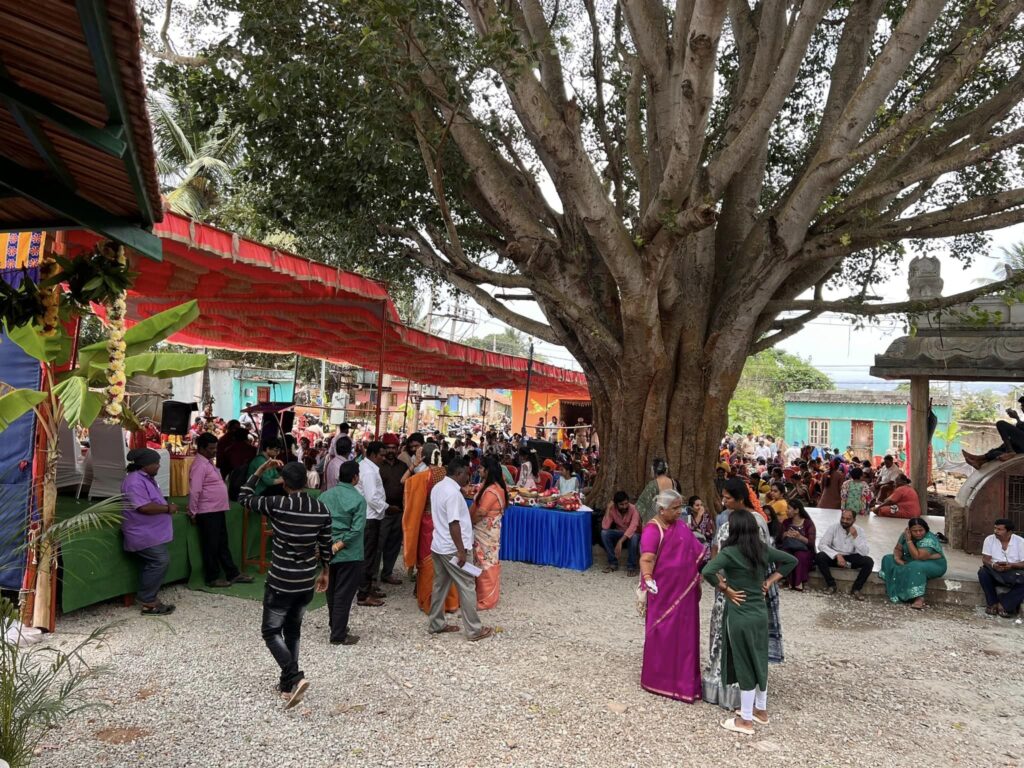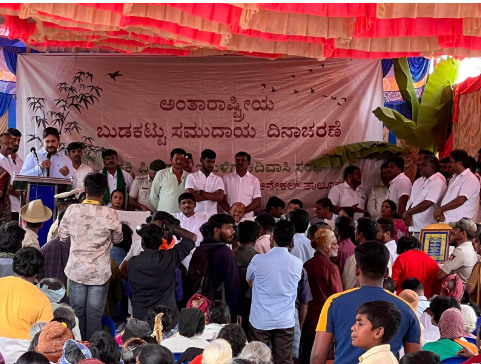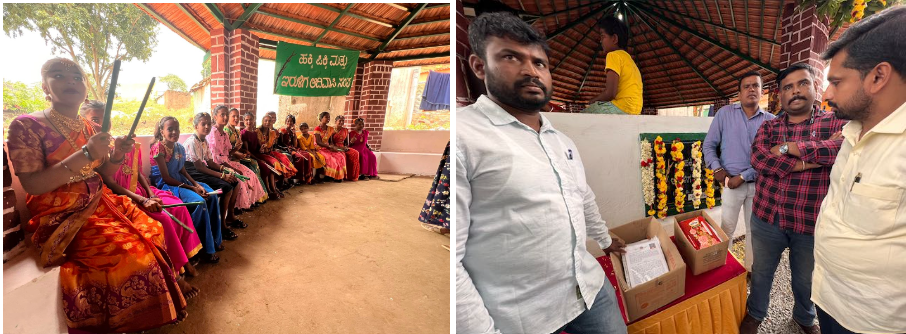Press Release: Securing land rights for the Hakki Pikki tribe in the Ragihalli State Forest



Vikhar Ahmed Sayeed, while writing about the Hakki Pikkis in April 2023 issue of Frontline, described the nomadic tribe as ““adventurous travellers and spirited entrepreneurs”. And he quoted members of the tribe describing their versatility as: “We are a community of illiterates but we have seen the world”, evidenced by some of their names “such as Japan, America, Inspector, Cycle Rani, Mysore Pak, Dafedar, Doctor, Lawyer, High Court”. Which indeed is because, as another member of the tribe Saya, they have “travelled all over the world to sell our products and have gone to all countries except China and Pakistan”.
Madhu Bhushan who has invested a greater part of her effervescent life to securing the welfare of this tribe, as part of the CIEDS initiative, says about them in the article thusly: “Basically, the Hakki Pikkis are an entrepreneurial community. Theirs is an economy of subsistence and the marginalised. Their trade networks do not conform to the known notions of the ‘poor’ and they make the most of their circumstances. They do make money but theirs is not an acquisitive way of money making. They make money, spend it, enjoy, and then start again. They were nomads once and are global nomads now.”
On 12th August, Hakki Pikki and Iruliga tribes made history in Karnataka, securing right to land in the Ragihalli State Forest which is part of the Bannerghatta National Forest ecosensitive region.
For decades, one group of the Hakki Pikki’s have been living in these forests barely surviving, often caught as “poachers” – the tribes don’t believe they are to be described this way, for they are only taking what Mother Nature gifted them, as the Wildlife Act 1972 was employed by Karnataka Forest department to forcibly remove them, and lakhs of other tribes from across forests of the state, as was also done to millions of tribes across India, to secure the forests for wildlife.
The brutal expunging of tribes who lived in forests and protected it, continued. Even following the enactment of Forest Conservation Act 1980 – a law that was meant to protect forests, but rarely did that. Instead the law gave the Union Govt power to divert forests to non forest uses – mining, dams, transport and urban infrastructure, resorts, etc., all found permissions. But tribes such as Hakki Pikki could not get a sq. foot of land to survive.
The Karnataka Govt, in fact, had provided the Hakki Pikki and Iruliga tribe group of Bannerghatta with land in 1960s. But that Notification was never implemented. Post the Wildlife Act, 1972 it was virtually impossible. Following the 1996 Godavarman Judgement of the Supreme Court, it became even more difficult for the tribes to secure their Right to Life, which included the Right to Land and Livelihoods.
Following the first enactment of the historic Forest Rights Act 2006, which sought to correct historical injustice done by India to forest dwelling tribes and other forest dependent cmtys, the struggle of Hakki Pikkis gained momentum. This required denotifying a portion of the National Park to Revenue land status, so it could be allotted to the tribe. There was staunch resistance from forest dept and wildlife groups, who claimed this would effectively ensure the Hakki Pikkis to return to their hunting ways, decimating wildlife. This has not been borne by facts, as the tribes have happily adapted to new adventurous ways of surviving a globalised world, trading trinkets and herbal remedies. Interestibgk
This struggle couldn’t have survived were it not for the tireless dedication of Madhu Bhushan, Shakun Doundiyakhed, Kalpana Chakravarthy, Kumar, Mamatha Yejaman, Altaf Ahmed & so many others from the CIEDS collective, who struggled with the Hakki Pikkis in their just struggle for land where they lived. This is an historic struggle of a community who the Brits chose to notify as “criminal tribes”, as they could not be ruled due to their nomadic ways and were quite simply free people who happily communicated the messages of the Freedom movement.
The Bannerghatta Hakki Pikki and Iruliga community succeeded in securing for each of the 114 families their right to land at the edge of the Bannerghatta National Park. 2 acres each to cultivate; land that cannot be sold for a generation at least, and land use of which will remain in perpetuity as agricultural, so it remains a ecological and social fencing of the forest from the menacing advance of Bengaluru Metropolis, whose ugly & destructive tentacles are all about the place.
In this historic land grant, as part of Environment Support Group (ESG) had a small role to play by helping convince the Ministry of Environment, Forest & Climate Change, Government of India that allowing these tribes to settle down here, ensuring the land use could never change, would be a good defence against an expanding metropolis & its destructive impact on the forest. The Hakki Pikkis are resolved to protect the forests and several already are working as Forest Dept trackers. It is absolutely possible now to ensure these forest peoples become the fortress against the ongoing forest and biodiversity destruction energised by Narendra Modi PMO India led emasculation of Forest Conservation Act and Biodiversity Act.
Through all these struggles, one politician stood steadfast in securing the rights of the Hakki Pikkis: DK Suresh, who ensured that all the road blocks thrown in securing this just outcome were removed, and the Hakki Pikkis right to land was ensured.
12th Aug will remain etched in Karnataka’s history, and for that matter India’s history, as the day when historic injustice done to Hakki Pikkis in Bannerghatta National Park was finally set right. All documents of ownership were handed over to the beneficiaries by the MP.
Read the Press Release here.

